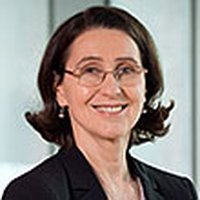Engineers Canada – Sustainability in practice
- Duration: 4 weeks
- Effort: 8 hours
- Pace: ~2 hours/week

Polymtl-SDES+2T2026
- Enrollment
- From Feb. 5, 2026 to April 11, 2027
- Course
- From May 1, 2026 to April 30, 2027
- Languages
- English
Description
Learn how to apply Engineers Canada’s National guideline on sustainable development and environmental stewardship for professional engineers.
This course is a joint project between Engineers Canada (EC) and Polytechnique Montréal. It will show real case studies illustrating practical applications of the 10 guidelines contained in EC’s National guideline on sustainable development and environmental stewardship for professional engineers (2016). It will also suggest tools for engineers to apply these guidelines in their professional practice.
Target audience
This course is designed for all practising engineers in Canada regardless of their discipline or their position, whether as employees, employers, researchers, academics, consultants, regulators or manager. The course has no prerequisites.
Course structure
Module 1: Sustainable Development, Environmental Stewardship, and Engineering
Introduction to the notions of sustainable development (SD) and environmental stewardship (ES). Environmental, social and economic challenges of SD. Overview of EC’s 10 guidelines.
Module 2: Improving Competencies: Available Tools for Engineers
Three case studies showing the importance of SD and ES, and illustrating the practical application of the guidelines. Tools and resources: social impact assessment, Global Reporting Initiative, life cycle assessment, environmental impact assessment, laws and regulations.
Module 3: Planning and Managing Risk in a Changing World
Three case studies showing the importance of SD and ES, and illustrating the practical application of the guidelines. Tools and resources: risk assessment and mitigation, biodiversity indicators, climate change adaptation and mitigation.
Module 4: Building a More Sustainable Future ****
Two case studies showing how engineers integrate SD & ES principles in the building industry. Summary review of the 10 guidelines and the importance of their implementation in the previously presented case studies
Course workload
The course requires approximately two hours’ work per week. This is required in order to follow the course material, complete the learning activities and take part in the debates and exchanges.
Course sequence and evaluation
The course will be given over a period of four (4) weeks, at a rate of one module weekly.
For each module, you will generally have:
- An introductory video for the module;
- A series of video vignettes introducing the concepts or guidelines presented in the module;
- Links to external resources and material, for those who wish to further explore some of the concepts beyond what is required to meet the course objectives;
- A quiz or exam. (Verified Track)
Modules 1, 2 and 3 are each followed by a quiz. These quizzes account for 30% of the course evaluation. At the end of module 4, there is a final exam, which accounts for the remaining 70% of the evaluation.
Modules will become available on the course site following the calendar below. However, you may follow the course at your own rate and leisure, as long as you respect the overall course deadline at the bottom of the table in submitting the evaluations and requesting your certificate of achievement.
Certificate of completion
At the end of the course, participants who have obtained the 65% passing grade will have the option to purchase a certificate of completion, which can be downloaded from the EDUlib web site for a US$75 fee. Please note that no university course credits are attributed to this certificate.
Other course runs
Archived
- SDES101.3, enrollment from Aug. 29, 2019 to Nov. 12, 2019
- SDES101.4, enrollment from Dec. 10, 2019 to May 1, 2020
- SDES101.5, enrollment from Sept. 4, 2020 to Dec. 2, 2020
- SDES101.6, enrollment from Jan. 11, 2021 to April 30, 2021
- SDES101.7, enrollment from July 29, 2021 to Dec. 1, 2021
- SDES101.8, enrollment from Jan. 24, 2022 to April 29, 2022
- Polymtl-SDES, enrollment from March 8, 2024 to April 26, 2024
- Polymtl-SDES+3T2024, enrollment from Sept. 10, 2024 to Nov. 29, 2024
- Polymtl-SDES, enrollment from April 8, 2025 to June 11, 2025
Course team
Millette, Louise
Categories
Louise Millette, P.Eng., FEC, Ph.D., is Director of the Department of Civil, Geological and Mining Engineering at Polytechnique Montréal and she is committed towards the implementation of sustainability principles in the engineering profession. She is Adjunct Director of the Interdisciplinary Research Centre on Operational Sustainable Development (CIRODD). Prof. Millette strongly believes in the importance of integrating these notions in engineering curricula, and she is chair of the academic committee of the Institute on the Environment, Sustainable Development and Circular Economy (Institut IEDDEC) of the University of Montreal Campus. She is also head of Polytechnique Montréal’s Sustainability Office.
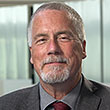
David Lapp
David Lapp, FEC, P.Eng., IRP, is Manager, Globalization and Sustainable Development at Engineers Canada. A geological engineer, he is active in climate change, infrastructure, environment and sustainability issues as they affect the practice of engineering. His work includes the development of practice guidance in these areas which includes the development and application of an infrastructure climate risk assessment tool known as the PIEVC Protocol that is used in Canada and internationally.
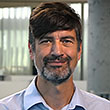
Patrick Cigana
Patrick Cigana, P.Eng., M.Sc.A, has practiced engineering for over 15 years in the private and academic sectors. Through his subsequent involvement in active politics, he developed an acute awareness of the social aspects of sustainable development. He is currently Senior Advisor at Polytechnique Montréal’s Sustainability Office.
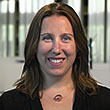
Shirley Fagnen
Shirley Fagnen, P.Eng., M.Sc.A., is also Sustainability Advisor at Polytechnique Montréal. Her previous experience includes work as life cycle analyst and as a sustainable development specialist in a consulting firm. She also has experience in developing MOOCs and will be animating and moderation the discussion forum.
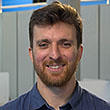
Alexandre Courchesne
Alexandre Courchesne, P.Eng., M.Sc.A, is currently teaching sustainable development to future engineers at Polytechnique Montréal, where he is also responsible for the undegraduate sustainability thematic orientation. He has over 10 years experience in the field of sustainable development, mainly as a life cycle analyst.
Participants
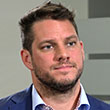
Jean-François Verret, P.Eng.
Director - Projects, Geology and Exploration
Raglan Mine
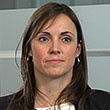
Amélie Rouleau
Director – Public Affairs, Communications and Community Engagement
Raglan Mine
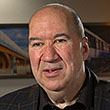
Denis Lefebvre, P.Eng.
Senior Associate
Stantec
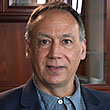
Greg Laflamme, P.Eng.
Operations Manager
Vestshell inc.

Matt Osler, P.Eng.
Project Engineer
City of Surrey
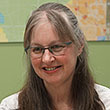
Carrie Baron, P.Eng.
Drainage Manager
City of Surrey

Anouk Desjardins, P.Eng.
Lecturer
Polytechnique Montréal
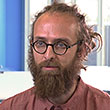
Alexandre Beaudoin
Biodiversity Advisor
Université de Montréal
With the support of
Catherine Carré
Educational Advisor
Polytechnique Montréal
Francis Demers
Multimedia Director, Educational Media
Polytechnique Montréal
David Lachambre
Multimedia technician
Polytechnique Montréal
Chris Feetham, P.Eng., MBA, FEC
Member, Environment and Sustainability Committee
Engineers Canada
Paul Fesko, P.Eng., MBA
Member, Environment and Sustainability Committee
Engineers Canada
Marie-Josée Leblanc
Multimedia technician
Polytechnique Montréal
Suzelle Barrington, P.Eng., FEC, Ph.D.
Member of the Accreditation Board
Consumaj Experts conseils
Denis Isabel, P.Eng., PhD, FIC
Member, Environment and Sustainability Committee
Engineers Canada
Mahmoud Mahmoud, P.Eng., PhD, FEC
Chair, Environment and Sustainability Committee
Engineers Canada
Catherine Christoffersen
Coordinator, Qualifications
Engineers Canada

